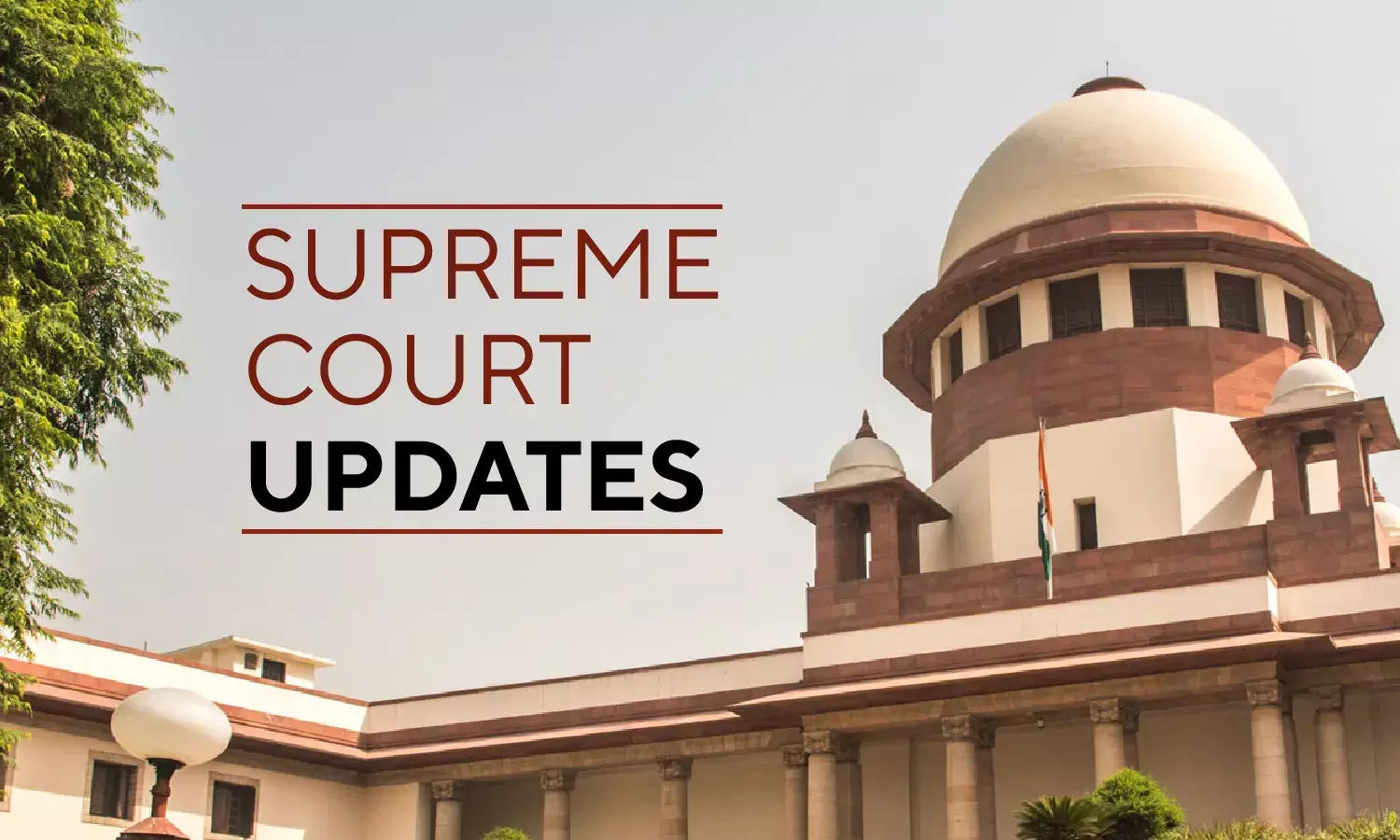Supreme Court To Hear Pleas Challenging 2023 Law Excluding CJI From Appointment Of Election Commissioners On Friday

Today, Advocate Prashant Bhushan mentioned an application before the Bench of Justice Sanjiv Khanna, Justice M.M. Sundresh and Justice Bela M. Trivedi, which seeks a stay on the implementation of Section 7 of the Chief Election Commissioner and Other Election Commissioners (Appointment, Conditions of Service and Term of Office) Act, 2023.
Justice Sanjiv Khanna responded by saying, “We got a message from the Chief Justice of India. We will list this on Friday.”
An application was filed on March 11, by Senior Advocate Prashant Bhushan on behalf of the Association for Democratic Reforms challenging the Act, 2023 alleging that it overrules the Constitution Bench decision of the Court in Anoop Baranwal v. Union of India without altering the basis. The application has been filed in the Writ Petition filed by the same party challenging the statute.
Earlier, the Supreme Court had refused to stay the law while issuing notice in a batch of petitions, where the lead case was preferred by Congress Leader Jaya Thakur
The new application by the Association for Democratic Reforms states, “Further, the Election Commission is not only responsible for conducting free and fair elections but it also renders a quasi-judicial function between the various political parties including the ruling government and other parties. In such circumstances, the Selection Committee which is ex facie dominated and controlled by the members from executive i.e. Prime Minister and Union Cabinet Minister (to be nominated by the Prime Minister) renders the selection process vulnerable to manipulation as it gives unfettered discretion to the ruling party to choose someone whose loyalty to it is ensured.
“The fundamental right to equality before law and equal protection of laws guaranteed by Article 14 of the Constitution, clearly includes a right to have the person's rights adjudicated by a forum which exercises its power in an impartial and independent manner. Thus, the impugned section violates Article 14 of the Constitution of India and is incompatible with free and fair elections”, the Petitioner submits.
It is also mentioned in the application that on February 14, 2024, Anup Kumar Pandey, Election Commissioner, demitted his post as he had completed his term, leading to a vacancy. Without any reason or explanation on March 10, 2024, the Government of India issued a notification stating that Arun Goel, Election Commissioner has resigned from his post and the same has been accepted by the Hon’ble President of India. Therefore, there are two posts of Elections Commissioners lying vacant and the Election Commission is functioning at less than the envisioned capacity of three official posts.
The Petitioner also submitted, “The impugned section restores the earlier position of law i.e. appointment of Chief Election Commissioner and Election Commissioner would be done solely by the executive. This is because Selection Committee is ex-facie dominated and controlled by the members from executive i.e. Prime Minister and Union Cabinet Minister (to be nominated by the Prime Minister). In such circumstances, the legislature, by impugned section, has not removed the defect which the court had found in the previous law in Anoop Baranwal (supra), and as such, the impugned provision is liable to be struck down by this Hon’ble Court.”
The Petitioner sought to stay on the implementation of Section 7 of the Act and directions for the Central Government to appoint the vacant positions.
On March 2, 2023, the Constitution Bench of the Apex Court in Anoop Baranwal v. Union of India held that the appointment of Chief Election Commissioner and other Election Commissioners shall be made by the President on the advice of a committee comprising the Prime Minister, leader of Opposition in Lok Sabha (or leader of the largest opposition party in Lok Sabha) and the Chief Justice of India.
The Supreme Court observed that to strengthen the democratic processes, the Election Commission needs to be independent and demonstrate transparency and accountability and that the Election Commission should be fearlessly, and robustly independent and such independence would be undermined if the selection process is done by an executive who has a critical stake in the electoral process.
The matter will now be listed on March 15, 2024.
Cause Title: Association For Democratic Reforms v. Union of India (W.P.(C) No. 87 of 2024)

